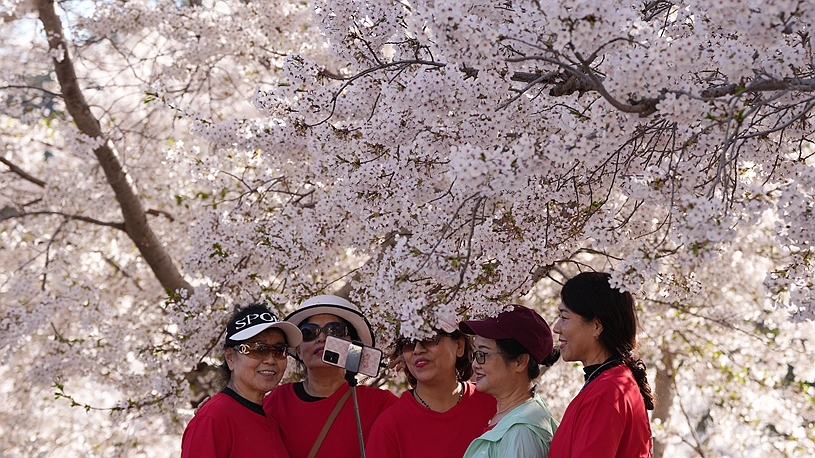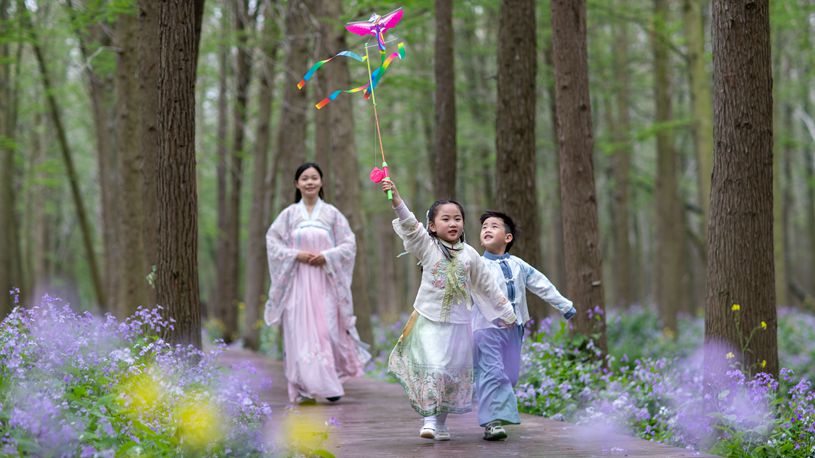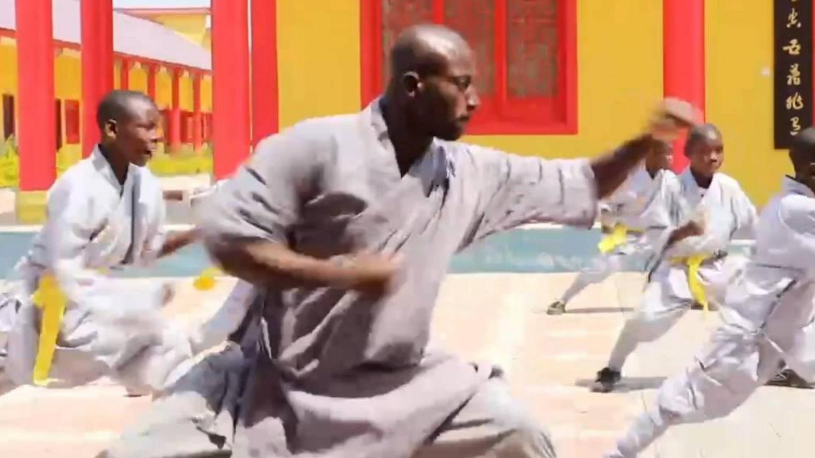This return marks a significant step in the ongoing cooperation between China and the United States in protecting and repatriating cultural heritage.
by Xinhua writer Yang Shilong
NEW YORK, April 18 (Xinhua) -- A treasure trove of 38 pieces of Chinese cultural relics, once lost but now on the cusp of returning to their ancestral homeland from New York, serves as a poignant symbol of the profound bond and goodwill shared between the American and Chinese people.
The sentiment was conveyed at a ceremony of the handover of the relics, held on Wednesday at the Chinese Consulate General in New York, attended by Li Qun, China's deputy minister of the Ministry of Culture and Tourism, along with Chinese Consul General in New York Huang Ping, and Matthew Bogdanos, chief of the Antiquities Trafficking Unit at the Manhattan District Attorney's Office.
This return marks a significant step in the ongoing cooperation between China and the United States in protecting and repatriating cultural heritage.
IMPLEMENTATION OF SAN FRANCISCO VISION
In his remarks at the ceremony, Li, who is also director of the National Cultural Heritage Administration (NCHA), said that the renewed cooperation between China and the United States in cultural relic returns signifies mutual trust and progress in artifact repatriation efforts.
China will continue to actively fulfill the memorandum of understanding with the United States on preventing the illegal entry of Chinese cultural relics into the United States, and work with the United States to establish a sound mechanism for information sharing on stolen relics, contributing the wisdom and strength of both countries to safeguarding cultural heritage and promoting mutual understanding through cultural exchanges, Li said.
Huang noted that the event is a positive implementation of the San Francisco Vision reached by the leaders of both countries in November last year and will greatly enhance cultural exchanges and friendship between China and the United States.
This year marks the 45th anniversary of China-U.S. diplomatic relations, and it is hoped that people from all walks of life in China and the United States will continue to work together to promote stable, healthy and sustainable development of China-U.S. relations, said Huang.
Bogdanos emphasized the significance of the return of these cultural relics in fostering cultural exchanges.
"I haven't met half of the people in this room, and that doesn't matter because for cultural heritage, what it does is it brings us all together, and all the differences melt away when we consider the shared cultural heritage of all humanity," Bogdanos said.
"We recognize two of the most important aspects to cultural heritage -- one is a reminder that we have far more in common than you might otherwise believe from all the headlines you read. And the second is that we have far more in common when we roll up our sleeves and get to work returning these antiquities where they belong because that's our only goal," said Bogdanos.
HUMANITY'S COMMON CULTURAL HERITAGE
Most of the 38 pieces of cultural relics returned Wednesday are Tibetan Buddhist artifacts from China, dating from the Yuan to Ming and Qing dynasties, with a rich variety and exquisite craftsmanship. Among them, ivory carvings, wooden sculptures, and fragments of murals are particularly rare and hold significant historical, artistic, and scientific value.
"China sincerely thanks the United States for its extensive efforts in promoting cultural relic returns, and we highly appreciate the professionalism demonstrated by our American counterparts in this endeavor," Wen Dayan, director general of NCHA's international cooperation department, told Xinhua after the handover ceremony.
Wen said this marks the third successful cooperation in cultural relic returns between the NCHA and the Manhattan District Attorney's Office (the other two were in May 2023, and September 2021), and it is also the first successful collaboration between Chinese and U.S. government departments since the renewal of the memorandum of understanding (MoU) on preventing the illegal entry of Chinese cultural relics into the United States in January this year.
The MoU between the two countries, initially signed on Jan. 14, 2009, has been extended for the third time, starting from Jan. 14 this year.
So far 504 pieces or sets of Chinese cultural relics have been delivered in 15 batches from the United States to China.
"China has always been committed to preventing and combating the illegal trafficking of cultural property through expanding government cooperation. It fully demonstrates the unremitting efforts and close cooperation of both countries in protecting humanity's common cultural heritage, setting a positive example globally," said Wen.
Bogdanos agreed. "Every one of these ceremonies that we have, where we are able to return looted antiquities to their homeland, whether it's China or any other country, for us, it's always a celebration," Bogdanos told Xinhua following the event.
"It's a celebration of what we have done, but it's also a reminder of how much we still have to do, because for every antiquity you see here that's being returned, there's another dozen that are still out there waiting for us to find, to seize, and to return to the country of origin," said Bogdanos.
"We are willing to work with the United States and other countries around the world to further strengthen cultural heritage exchange and cooperation, including preventing and combating the illegal trafficking of cultural property, making more active contributions to protecting humanity's common cultural heritage, and promoting mutual understanding through cultural exchanges," said Wen.
(Video reporters: Xie E, Yang Shilong; video editors: Zhang Mocheng, Zhao Xiaoqing, Zhu Jianhui, Wang Han.)■












